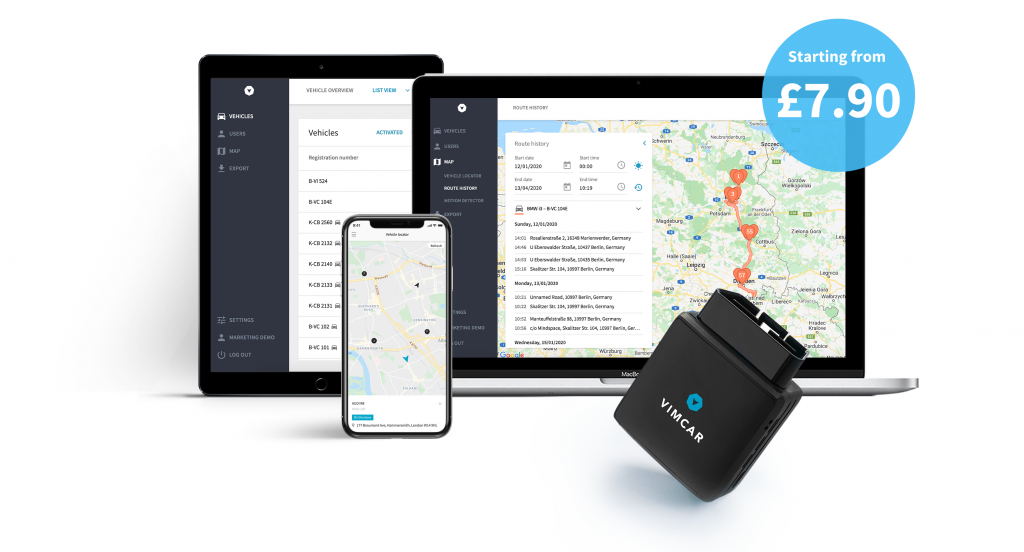Introducing a company car scheme to your business comes with many benefits. Improved recruitment and retention of employees, increased reputation and better flexibility for employees are just some of the perks that come from using company cars.
However, there are also a number of drawbacks to company car schemes that both employees and employers should be aware of. This article will first explain how company cars work, then it will outline the key benefits and drawbacks of company car schemes.
How Do Company Cars Work?

A company car is any vehicle that’s used by a single employee that is leased or owned by their employer. Because the employer owns the car, they are responsible for any maintenance and repairs.
Company cars are treated as private vehicles for employees to take home. This provides employees with more flexibility, as well as the opportunity to drive new vehicles they otherwise may not have been able to afford.
A company car may be used for business or personal reasons, but the mileage must be recorded separately. It’s possible for employees to claim back business miles when they submit their annual taxes, so keeping records of both personal and business miles is crucial.
How do Company Cars Work? Download a free Checklist to Buy the Best Company Cars
Benefits of Company Cars
Company cars benefit employees and employers in a number of ways. The key benefits of creating a company car scheme for your business include:
- NIC contributions — Company cars provided as part of a “salary sacrifice scheme” can reduce an employers’ National Insurance Contribution obligations.
- Recruitment — A company car scheme is often an appealing perk to potential employees. Plus, they can help retain employees long-term.
- Reputation — Company cars can boost an employer’s image.
- Sustainability — Employers can choose which cars may be driven by their employees. If they opt for low-emission vehicles, companies can reduce their carbon footprint.
- Flexibility — Company cars give employees more flexibility. This is beneficial for anyone who frequently travels between job sites.
Drawbacks of Company Cars

Although company cars come with many benefits, there are also some drawbacks — for both employers and employees — to consider before committing to a company car scheme.
- Maintenance and repair — Maintenance and repair fees on company cars are the employers’ responsibility. As such, employers should be prepared to pay for unforeseen company costs in the future.
- BIK Tax — Benefit in Kind tax is applied to non-cash company benefits and perks, like company cars. Employees with a company car may be subject to a higher tax rate, but it depends on the fuel type and CO2 emissions of their car.
- Car Fuel Benefit — If a company car scheme also includes fuel, then employees will be taxed on that as well.
- Total ownership — Employers own the vehicles and are therefore responsible for them. As such, they must be prepared to oversee a company car’s entire life cycle.
Read More: How Does Company Car Tax Work?
Using Vehicle Trackers for Company Cars
If you’re committed to implementing a company car scheme for your business, it’s also recommended that you invest in vehicle trackers for your company car fleet.
With vehicle tracking software like Fleet Geo, employers will be able to locate company cars in real-time and will be notified of potential theft attempts. These features are especially beneficial for employees who must drive between work sites or to meetings in unfamiliar places.
Employers can also use the Driving Style Analysis feature to check employees’ driving behaviour. This includes speeding, acceleration, phone usage and more. With this information, employers can correct poor driving behaviour that drives up fuel costs and increases the wear and tear on the company car.
Using vehicle tracking software to track company cars provides an additional layer of security.
However, it’s important to note that by law you may only track company cars if commercial drivers are able to turn off the GPS tracker after working hours. Fleet Geo has its own Privacy Mode, which drivers can easily turn on when driving their company cars for personal trips.
Is a Company Car Scheme Right For You?
Creating a company car scheme requires extensive planning and research, and it’s important to weigh the pros and cons of company cars first.
Although company cars can help boost a business’s recruitment rates and reputation, they also come with their own unique tax requirements and maintenance costs.
If you do decide to implement a company car scheme for your business, it’s recommended that you install vehicle trackers. Vehicle trackers like Fleet Geo can be used to track company cars during business hours to provide extra security and identify poor driving behaviours.
For more information on how Vimcar’s products fit into your company car scheme, contact us today.
Vimcar Brochure







